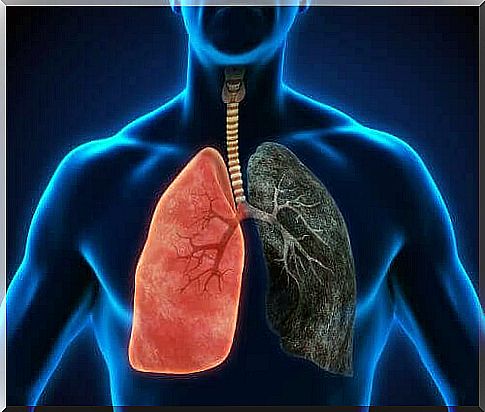Pneumonia Symptoms You Shouldn’t Ignore

Pneumonia is an infectious disease that directly attacks the lungs. Yet many people do not know what the symptoms of pneumonia are.
This disease usually affects people with weak immune systems, such as the elderly or children.
The progression of pneumonia can lead to several health problems, which is why it is so important to detect it as early as possible.
If you want to learn more about the causes and symptoms of pneumonia, you can find all the answers in this article. This is very important!
What exactly is pneumonia?
The lungs carry out one of the most important processes of the human body, which is breathing. They distribute oxygen throughout the body and expel carbon dioxide from our body.
We speak of pneumonia when one or both lungs have become infected.
The infection fills the lungs with fluid and pus. This naturally makes it a lot harder to breathe normally. In some cases, pneumonia can even be life-threatening because of:
- The decrease in oxygen.
- The accumulation of carbon dioxide in the body.
What are the causes of pneumonia?

Usually, pneumonia is caused by microbes, bacteria, viruses and fungi. These can be contracted in several ways, such as:
- Bacteria and viruses from the nose, mouth or paranasal sinuses can travel to the lungs.
- Inhalation of microbes.
- Inhalation of certain foods, liquids, or secretions, among other things.
- Infection from pneumococcal disease.
- flu complications.
- fungal infections.
What are the symptoms of pneumonia?
The symptoms of pneumonia can vary depending on each case and how the disease progresses in the patient. However, the most common symptoms of pneumonia are:
1. Chills

Normally, people with pneumonia experience chills several times a day. These shivers last anywhere from thirty to sixty minutes.
2. Fever and Cough
Fever and cough are often the second symptoms seen in patients with pneumonia. They may have a consistent fever of up to 40ºC, general feeling of being unwell and coughing.
- Mucus may also come up when you cough. This mucus can be reddish brown or yellow-green in color. In some cases there may even be blood present.
- In addition, the fever and cough may be preceded by a throat infection.
3. Difficulty breathing

Respiratory problems occur as a result of the little oxygen the body receives when it suffers from a disease such as pneumonia. However, this deficiency becomes more apparent when performing activities that require physical exertion such as:
- climbing stairs
- Walk fast
- Lifting heavy objects
Not only can pneumonia hinder breathing, but it can also lead to rapid, shallow breathing.
4. Pain When Breathing In
People who suffer from pneumonia usually also experience pain when breathing in. This pain is usually caused by an inflamed lining of the lungs, better known as pleurisy.
5. Numbness and Color Changes in the Limbs

The lack of oxygen in the body can also cause a feeling of coldness, inflammation and numbness in the following body parts:
- lips
- Tongue
- Limbs
- fingers
- Nose
As a result, these body parts can also turn a blue or purple color.
6. Joint Pain
In some cases, constant joint pain can also be one of the symptoms of pneumonia. This pain is then caused by the reduced amount of oxygen flowing through the body.
7. Confusion

In some cases, pneumonia can lead to temporary mental changes such as confusion or disorientation in the elderly.
8. White nails
Also known as leukonychia, this symptom can result from factors such as chemical poisoning, heart disease, pneumonia, or hypoalbuminemia.
In addition to the symptoms mentioned above, pneumonia can also cause the following symptoms:
- Excessive sweating and clammy skin.
- Low energy and fatigue.
If you experience more than one of these symptoms, we recommend that you consult your doctor so that you can undergo the appropriate tests. This allows you to get the right treatment as quickly as possible.
Featured Image Courtesy of © wikiHow.com








